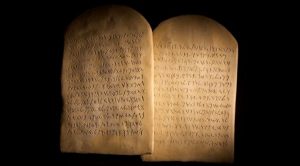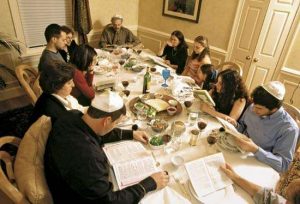
Pastor Rich Knight
Central Congregational Church
March 4, 2018
Psalm 136
We’re studying the Book of Psalms this Lent, the Prayer Book and Hymnal of the Israelites. Today Nike Vomero 18 Review: Bigger is Better – Nike Air Max 95 Cuban Link velvet brown UK 5 – Cheap Fenua-environnement Jordan Outlet we’re going to look at Teaching Psalms. Theses are also called, “Sacred History” or “Holy History” Psalms. In fact, one of the things you learn when studying the psalms is that there is no universally accepted terminology for classifying the psalms. Each scholar has their own terms and classification system. And some psalms get put in one category by one scholar and in another category by another scholar. However, today’s psalms are not hard air jordan 31 xxx1 to classify, no matter what terminology you use. Teaching Psalms retell the history of God and the Israelites, celebrating God’s presence, guidance and covenant with them. These psalms grounded them and us in a long line of faith and in a particular community of faith. They remind how grand the story is, the story of God’s relationship with humanity.
Psalm 136 is a good example of a Teaching Psalm.
O give thanks to the Lord, for he is good, for his steadfast love endures forever.
O give thanks to the God of gods, for his steadfast love endures forever.
O give thanks to the Lord of lords, for his steadfast love endures forever;
who alone does great wonders, for his steadfast love endures forever;
who by understanding made the heavens, for his steadfast love endures forever;
who spread out the earth on the waters, for his steadfast love endures forever;
who made the great lights, for his steadfast love endures forever;
the sun to rule over the day, for his steadfast love endures forever;
the moon and stars to rule over the night, for his steadfast love endures forever;
who struck Egypt through their firstborn, for his steadfast love endures forever;
and brought Israel out from among them, for his steadfast love endures forever;
with a strong hand and an outstretched arm, for his steadfast love endures forever;
who divided the Red Sea in two, for his steadfast love endures forever;
and made Israel pass through the midst of it, for his steadfast love endures forever;
but overthrew Pharaoh and his army in the Red Sea, for his steadfast love endures forever;
who led his people through the wilderness, for his steadfast love endures forever;
who struck down great kings, for his steadfast love endures forever;
and killed famous kings, for his steadfast love endures forever;
Sihon, king of the Amorites, for his steadfast love endures forever;
and Og, king of Bashan, for his steadfast love endures forever;
and gave their land as a heritage, for his steadfast love endures forever;
a heritage to his servant Israel, for his steadfast love endures forever.
It is he who remembered us in our low estate, for his steadfast love endures forever;
and rescued us from our foes, for his steadfast love endures forever;
who gives food to all flesh, for his steadfast love endures forever.
O give thanks to the God of heaven, for his steadfast love endures forever.
(You can see from the make-up of this psalm how it was used in Israelite worship. The worship leader read or sang the first part of each sentence. Then the congregation responded, “for his steadfast love endures forever!”)

You may have heard the story the minister and the rabbi in a small New England town who were getting to know each other. They were sharing about their lives and even did a little bragging about their families Jordan 1 Metallic Purple - Analysis and More - AIR JORDAN 8 CIGAR & CHAMPAGNE, Sports Illustrated air jordan 5 shoes in white purple. Proudly the minister said, “One of my ancestors actually signed the Declaration of Independence.” “I can understand your pride,” replied the rabbi. “One of my ancestors signed the Ten Commandments.”
(After Moses broke the first set of tablets, God made him write air jordan 4 mars blackmon 2024 out the second set. This was 3000 years prior to the Declaration of Independence.)
Both clergymen had deep roots, a heritage to celebrate, give thanks for and be faithful to their heritages. The group of psalms we’re talking about today are meant to give us a heritage, a history with God, so that we might walk confidently into the future with our God. It helps to know where we’ve been in this Sacred Story. It helps us find our place in The Story.
These psalms are not mere nostalgia. They’re not meant to just give us sentimental feelings and warm fuzzies. The refrain in Ps. 136 says, God’s “steadfast love endures forever!” That means God’s love is there for us today. God was faithful to our ancestors and walked with them, and God’s love never ends! So God’s love is with us today! That’s the truth these psalms convey.
These psalms retell the history of the Israelites and their God. Psalm 105 is another example of these Sacred History Psalms. “Give thanks to the Lord, call on his name, make known his deeds among the people, tell of his wonderful works!” The psalm then takes a stanza and tells the story of Abraham. Then there’s a verse about Isaac and one about Jacob, then one about Joseph & his Brethren. There’s a verse about the Israelites time in Egypt and their Exodus from there led by God and Moses. (You’ll find this psalm at the end of this sermon)
Think about it. When the psalms were written (1446 BC – 586 BC) there were no study bibles or children’s bibles. So one of the ways they learned the story was to sing their sacred stories. We still use this method today, especially with children.
“Joshua fought the battle of Jericho, Jericho, Jericho.
Joshua fought the battle of Jericho, and the walls came a-tumblin’ on down.”
Or, “Them bones, them bones, them dry bones,” which teaches Ezekiel’s vision of the Valley of the Dry Bones (Ezekiel 37).
What Teachings Psalms do is tell our family stories. Every family has its collection of stories. They’re often told around the dinner table, especially at holidays, “Remember that Thanksgiving when we had that fire in the oven, but we still were able to eat the turkey! That was awesome!” Or we tell them at birthday parties, “I remember when you were younger and you dove headfirst into your birthday cake!”
Family stories remind us of our family ties, our shared history. They celebrate times of closeness, unity and love. They give us a sense of identity, of belonging, of having roots.
Psalm 136 retells the story of creation. Then it recounts the Exodus from Egypt, as Moses and God led the people to freedom. Then it tells how God led them through the wilderness. And then it moves suddenly into the present: “It is he who remembered us and rescued us; for his steadfast love endures forever.”
Notice the word, “us.” The psalmist is suddenly speaking in the present tense. Ancient Jews and many Jews today feel a strong connection to biblical history, in the same way that most Americans feel a strong connection to the story of America, especially early American history. It’s our history, our journey, our story.

In celebrations of Passover today, modern Jews say these words:
“It was not only our fathers whom the Holy One redeemed, but also us who he redeemed with them, as it is said, ‘And us he brought out, that he might lead us, too, and give us the land which he swore to our fathers.”
You can hear what’s being said. When God freed the Israelites of old, God freed us, too. When the Lord led them through the wilderness, he was leading us, too. We’re part of that story!
It’s probably easier for us to relate to this concept if we think about the New Testament, particularly the Gospels. We recognize that Jesus’ words to the disciples are to us as well.
- When Jesus gave the disciples the Lord’s Prayer, he was giving it to us as well.
- When Jesus said, “In my Father’s House are many rooms,” we know that promise is for us, too.”
- When he said, “Lo, I am with you always, even to the close of the age,” he was speaking to us as well.
- Christ died on the Cross for our salvation, not just for the earliest Christians.
- Jesus rose from the grave and we are assured of Eternal Life.
Biblical truths are our truths.
Biblical promises are our promises, too.
Biblical stories are our stories, too.
Let me close with an illustration that I hope makes this even clearer.
Years ago I heard an interview on the radio with a reporter named William Smith (if I remember correctly). The newspaper Smith was working for wanted him to do an article on Native American Spirituality. This was at the start of a renewed interest in the subject in our county. Smith agreed to do the story, partly because he was half Native American. It was something that was never talked about in his family growing up. One of his parents was Native American, but not proud of it at all for some reason. So Smith knew nothing about this part of his heritage.
The newspaper sent him to a Lakota Sioux reservation for a week. There was a large festival, a pow-wow, taking place. There were lots of activities that week, and Smith not only watched them, he also participated in them. There was a sweat lodge for purification, peace pipe ceremonies and ancient dances. But what meant the most to Smith were the stories told by the elders, told around campfires, in the sweat lodge or while the peace pipe was being passed around. The stories were often about the Great Spirit and Mother Earth and how to live in harmony with both. Smith was profoundly impacted by what he had learned and experienced. He concluded his article with these words: “I went to the reservation a reporter. But I left there a Lakota Sioux.”
When you walk out of these church doors each Sunday, I hope you leave here a Christian. I hope you leave here more of a Christian than when you walked in, because you’ve heard the sacred stories, participated in ancient Christian practices, and on mornings like this one, shared in the sacred meal. I hope all these experiences help you find your place in the story and your place at the table of God’s steadfast love.
Amen.
Psalm 105
O give thanks to the Lord, call on his name, make known his deeds among the peoples.
Sing to him, sing praises to him; tell of all his wonderful works.
Glory in his holy name; let the hearts of those who seek the Lord rejoice.
Seek the Lord and his strength; seek his presence continually.
Remember the wonderful works he has done, his miracles, and the judgments he uttered,
O offspring of his servant Abraham, children of Jacob, his chosen ones.
He is the Lord our God; his judgments are in all the earth.
He is mindful of his covenant forever, of the word that he commanded, for a thousand generations,
the covenant that he made with Abraham, his sworn promise to Isaac,
which he confirmed to Jacob as a statute, to Israel as an everlasting covenant,
saying, “To you I will give the land of Canaan as your portion for an inheritance.”
When they were few in number, of little account, and strangers in it,
wandering from nation to nation, from one kingdom to another people,
he allowed no one to oppress them; he rebuked kings on their account,
saying, “Do not touch my anointed ones; do my prophets no harm.”
When he summoned famine against the land, and broke every staff of bread,
he had sent a man ahead of them, Joseph, who was sold as a slave.
His feet were hurt with fetters, his neck was put in a collar of iron;
until what he had said came to pass, the word of the Lord kept testing him.
The king sent and released him; the ruler of the peoples set him free.
He made him lord of his house, and ruler of all his possessions,
to instruct his officials at his pleasure, and to teach his elders wisdom.
Then Israel came to Egypt; Jacob lived as an alien in the land of Ham.
And the Lord made his people very fruitful, and made them stronger than their foes,
whose hearts he then turned to hate his people, to deal craftily with his servants.
He sent his servant Moses, and Aaron whom he had chosen.
They performed his signs among them, and miracles in the land of Ham.
He sent darkness, and made the land dark; they rebelled against his words.
He turned their waters into blood, and caused their fish to die.
Their land swarmed with frogs, even in the chambers of their kings.
He spoke, and there came swarms of flies, and gnats throughout their country.
He gave them hail for rain, and lightning that flashed through their land.
He struck their vines and fig trees, and shattered the trees of their country.
He spoke, and the locusts came, and young locusts without number;
they devoured all the vegetation in their land, and ate up the fruit of their ground.
He struck down all the firstborn in their land, the first issue of all their strength.
Then he brought Israel out with silver and gold, and there was no one among their tribes who stumbled.
Egypt was glad when they departed, for dread of them had fallen upon it.
He spread a cloud for a covering, and fire to give light by night.
They asked, and he brought quails, and gave them food from heaven in abundance.
He opened the rock, and water gushed out; it flowed through the desert like a river.
For he remembered his holy promise, and Abraham, his servant.
So he brought his people out with joy, his chosen ones with singing.
He gave them the lands of the nations, and they took possession of the wealth of the peoples,
that they might keep his statutes and observe his laws. Praise the Lord!
